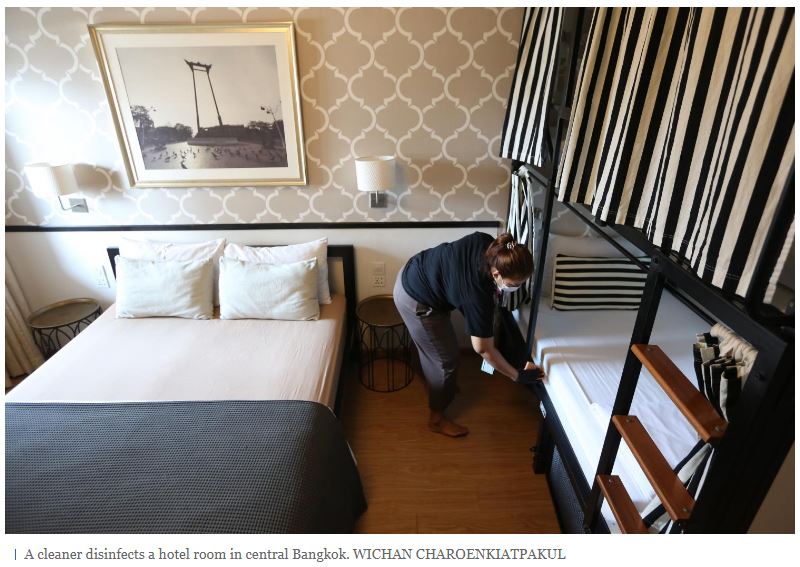Thailand: Hotels cut costs to ride liquidity crunch
Hoteliers keep on implementing cost reduction strategies to deal with the liquidity crunch, hoping local demand can improve upon disastrous earnings in the second quarter.
The pandemic had a major impact on the hospitality industry, with large hotel management and investment companies reporting tremendous setbacks in the first half.
Central Plaza Hotel Plc (Centel) reported revenue of 139 million baht, plummeting 93.1%, from hotel business in the second quarter, while revenue in the first half closed at 1.94 billion baht, a dip of 59.3% year-on-year.
Ronnachit Mahattanapreut, Centel senior vice-president of finance and administration, said the company has been resilient during past crises as a result of stringent financial discipline.
He said Centel will keep preserving liquidity and revising it investment budget. But it will keep up ongoing projects, such as Centara Grand Osaka, and renovation budgets for existing properties.
By applying leave without pay policies, the company could slash payroll costs by 40% in the second quarter with employees receiving compensation from the Social Security Fund during time of closure.
From July to August, Centel reopened eight of its owned hotels and eight hotels under management contracts in Thailand.
The group’s overall occupancy rate this year will be 30-35%, excluding new properties, namely Centara Grand Beach Resort Samui and COSI Pattaya Wong Amat Beach, said Mr Ronnachit.
Meanwhile, SET-listed Erawan Group Plc (ERW) reported 56 million baht in hotel revenue in the second quarter, plunging 96% year-on-year, while the first half revenue dipped 60% to 1.22 billion baht.
Petch Krainukul, ERW president, said the group will resume just five ongoing projects — two in Thailand and three in the Philippines — while postponing other new investment to preserve cash flow.
The cost-saving measures, such as workforce management and price reduction negotiation, will help tighten fixed costs by 40-50% compared with last year.
He said the group still has faith the Hop Inn brand can attract local guests as the market is unfazed despite volatile conditions.
The average occupancy at Hop Inn properties climbed to 60-65% within one month after reopening and is expected to climb back to pre-Covid levels by the end of this year.
ERW reopened 66 hotels in Thailand this month.
Chaiyapat Paitoon, chief strategy officer at Minor International Plc (MINT), said the company is still committed to its cost reduction plan and will not invest in new projects this year.
Effective cost reduction of around 30% will help hotels reach break-even occupancy rates faster, even at only 34-42% occupancy rates.
More than 75% of MINT’s 526 hotels in 55 countries have reopened.
In the second quarter, hotel revenue dived 91% year-on-year to 2.13 billion baht, while the first six months saw 18 billion in revenue, down 61% from the same period last year.
“We passed the nadir in April and May when the government imposed a lockdown policy,” Mr Chaiyapat said.
“The outlook for the second half is promising.”
Source: https://www.bangkokpost.com/business/1974031/hotels-cut-costs-to-ride-liquidity-crunch


 English
English




